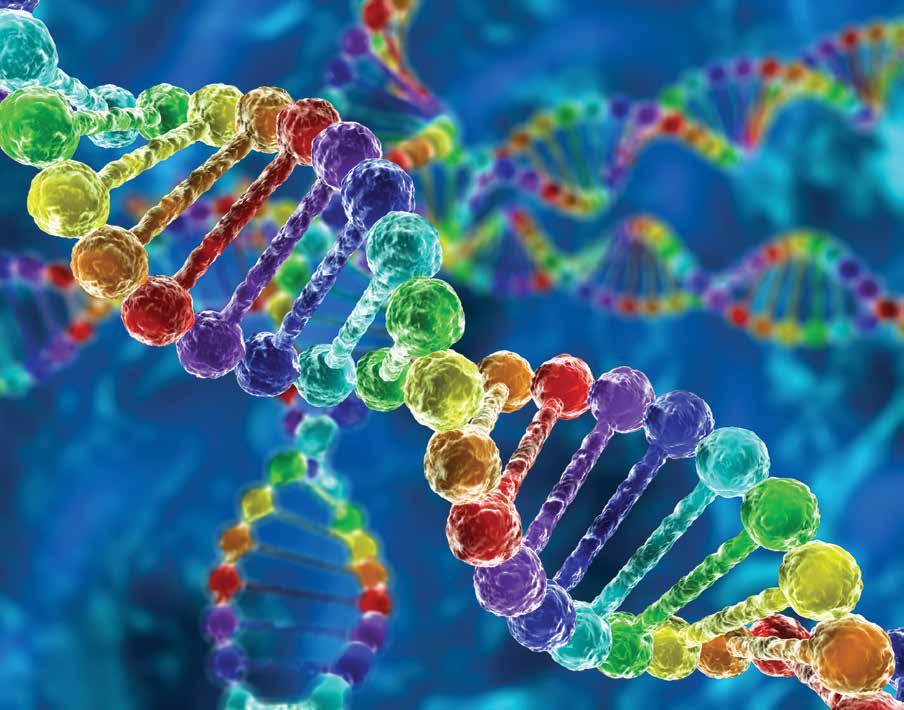
3 minute read
What’s Your Risk
Are You at Increased Risk for Breast Cancer? Memorial Can Help You Find Out.
Complete your high-risk breast cancer assessment online at www.lcmh.com/genetics. There is no laboratory testing or physical exam. It is essentially just a series of questions.
Advertisement
“It is very important to identify a subset of the population that needs increased screening and/or earlier screening.” Ellen Richardson, RN, Nurse Navigator Memorial Medical Group Genetics
Breast cancer is the most common cancer for women in the United States. There have been more than 275,000 new cases in 2020 so far and approximately 40,000 women will die of breast cancer this year. Prognoses have improved over the years and early detection is integral to survival rates. That means screening to detect cancer as early as possible, and understanding that some women and men may be more at risk than others is the next battle in the fight to defeat breast cancer.
“Most of the recommendations start screening for breast cancer annually with a mammogram at age 40,” says Memorial Medical Group Breast Cancer Surgeon Amanda Ellington, MD. “Overall lifetime risk of developing breast cancer is 12.8 percent, but keep in mind that there are times in a woman’s life where she is at elevated risk. You’re at a higher risk at age 60 than you are at age 20.”
Looking at the incidence by age group can also be deceiving. Patients less than 40 years old make up less than one-percent of cases of invasive breast cancer and 40-50 year old women make up less than two percent of cases. But, if every woman only started screening mammograms at age 50, 45,000 cases of breast cancer would be missed.
Five-percent of breast cancer cases are in women under the age of 40, which amounts to 13,000 cases a year. With most health organizations not recommending mammograms until age 40, that means that some women may not get the screening they need as early as they need. That’s where Ellington says genetics come into play.
“It’s very important to identify a subset of the population that needs increased screening and/or earlier screening,” says Ellen Richardson, RN, a nurse navigator with Memorial Medical Group Genetics. “We do that by stratifying patients with a breast cancer risk assessment. It is able to identify women or men with an increased risk who should be screened earlier.”
Risk assessments are a quick and easy tool that women can use to determine if they are at a higher risk of developing breast cancer. Every woman should have a risk assessment by age 25 or 30, and they stop being administered between ages 70-75. There is no laboratory testing or physical exam. It is essentially just a series of questions.
These questions range from age of first live birth, personal medical history, any biopsies or breast findings in the past as well as a family history of cancer diagnoses—breast and otherwise. Using these tests, Ellington and her team calculate an individual’s risk of developing breast cancer in their lifetime. Anyone with a lifetime risk of 20 percent or higher qualifies as high risk, but what does that mean?
“High risk patients are screened differently than the general population,” Dr. Ellington says. “They are screened earlier than average patients and we add breast MRI to annual screening mammography. These women are getting a more sensitive test to try and pick up abnormalities due to their increased risk.”
Patients who are higher risk are also encouraged to have a professional breast exam every six months rather than annually, and there are further surgical interventions that could be recommended, depending on the patient and their personal degree of risk. An extreme example would be a bilateral mastectomy.
High risk populations are not the only people who will develop breast cancer, so it’s important for all women to follow the screening guidelines for breast cancer and to monitor any changes or symptoms they may be experiencing.
“Regardless of risk, always tell your physician about a breast symptom—whether it’s a mass, pain, et cetera,” Dr. Ellington stresses. “Regardless of your risk, those things need to be worked up.”
Complete your high-risk breast cancer assessment online at www.lcmh.com/genetics or contact Ellen Richardson at erichardson@lcmh.com.






